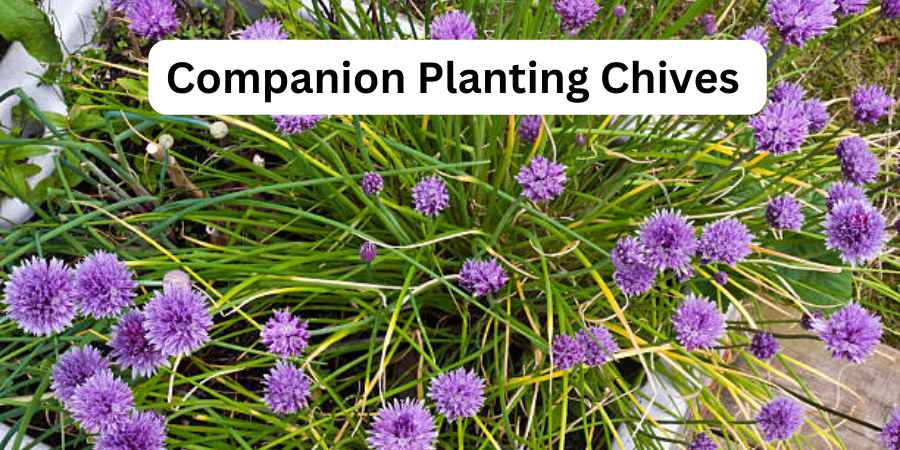Last Updated on June 10, 2025 by Jocelyn
Chives (Allium schoenoprasum) are an easy-to-grow, low-maintenance herb that adds both beauty and function to any garden.
Their grass-like leaves and purple blooms suit various soil types and reliably return each year. Besides offering mild onion flavor, chives are valued in companion planting for their natural pest-repelling properties and ability to support plant health.
They grow well with carrots, tomatoes, and roses. Chives help deter aphids and encourage better growth in these plants. However, they should not be planted near beans or peas, as they may interfere with legume development.
Their strong scent and sulfur compounds make them highly effective in vegetable and herb gardens by creating a more balanced and resilient environment.
Chives benefit a wide range of crops, flowers, fruits, and herbs. Their edible leaves, flower stalks, and blooms offer culinary value while also enhancing garden productivity through thoughtful plant pairing.
Table of Contents
ToggleWhy Chives Make Excellent Companions
In my garden, I have found that chives are wonderful companions to many plants. These natural herbs repel pests like carrot flies, Japanese beetles, and aphids, acting as a guard to keep unwanted visitors away.
The aromatic nature of garlic chives also brings health benefits that enhance the vigor and taste of nearby vegetables and other herbs.
| Aspect | Benefits |
| Repelling pests | Chives repel carrot flies, Japanese beetles, and aphids. |
| Health benefits | Garlic chives boost the health of garden neighbors. |
| Enhancing flavor | Chives improve the taste of vegetables and herbs. |
| Nutrient content | Rich in vitamins and minerals, they are a must-have. |
Their rich vitamin and mineral content helps improve the health and flavor of their neighbors. I enjoy seeing how these companion plants make my garden thrive.
To learn more about companion planting Check out my guides:
Best Companion Plants for Chives
Chives have a special presence that can lead to improved growth and better pest resistance. Some of the best companion plants for chives are ones that make a great match in the garden bed.
By planting chives with other plants, you can see how well they work together. The chives and their companions truly grow better side by side, making your garden a more successful and beautiful place.
1. Carrots
Growing carrots with chives can help improve your carrot crop. Chives have a strong scent that can repel pests like carrot flies and onion flies. This scent acts like a natural shield, protecting your carrot plants from damage.
When planting chives next to your carrots, you’ll notice your carrots grow more healthy and bigger. The leaves of chives also help by repelling aphids, which can harm your Daucus carota (the scientific name for carrots).
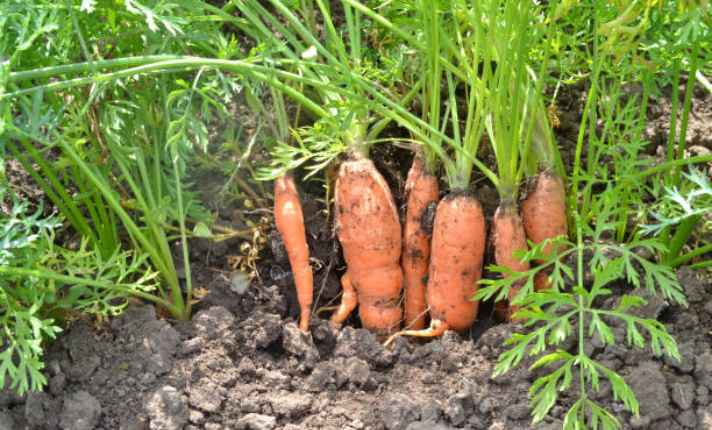
Besides repelling pests, chives enhance the flavor of your carrots, making them taste even better. So, by throwing some chives into the bunch of carrots you’re growing, you get a healthier and more flavorful crop.
2. Tomatoes
Growing chives with tomatoes in your garden is a great idea. Chives not only add a brilliant taste to tomatoes just like garlic and other alliums, but they also help repel pests like aphids, spider mites, and tomato hornworms.
This helps in increasing the yield and overall crop production of your tomato plants, also known as Solanum lycopersicum.
I remember planting cilantro, mint, and nasturtium alongside my tomatoes and chives; the growth was impressive, and my plants were healthier.
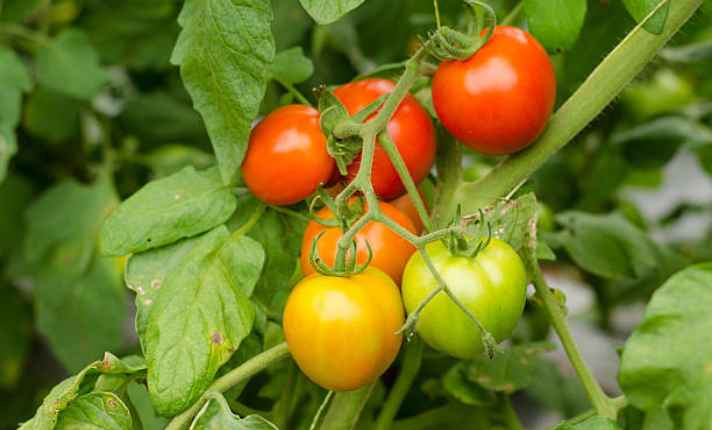
Chives also attract beneficial insects like hoverflies and parasitic wasps, which prey on tomato pests, keeping your garden safe.
My experience shows that chives can significantly boost your tomato plants’ health, just as they do with carrots.
3. Cucumbers
When I grow cucumbers in my garden, I always plant chives nearby. This helps keep cucumber beetles away from the plants. These beetles can munch on the leaves and harm the cucumber plants, but chives help repel them.
This is good for the health of the crop. The mutual support between chives and cucumbers creates a beneficial environment for both to thrive.
I have noticed that the cucumber plants seem to improve when chives are nearby, and my garden is healthier overall.
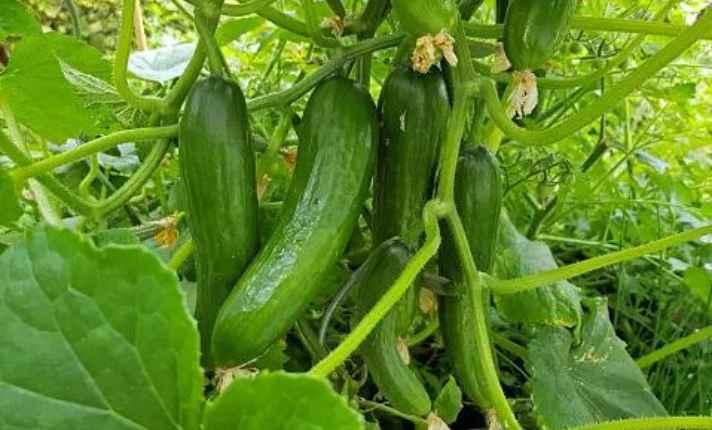
4. Parsley
Growing Parsley (also known as Petroselinum crispum) alongside chives in your garden is a smart choice. Parsley is not only a herb with lush foliage and delicate flowers, but it also attracts beneficial insects like hoverflies and parasitic wasps.
These insects prey on pests such as aphids and caterpillars that can harm chive plants. The visual interest of Parsley adds beauty to the garden bed, and it thrives under the same growing conditions as chives.
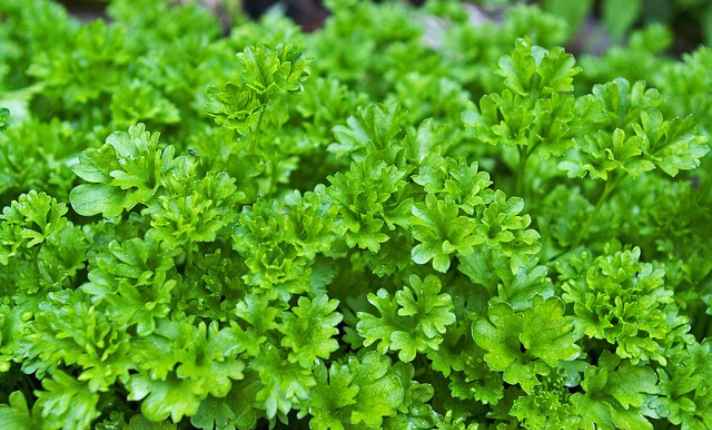
Additionally, chives have pest-repellent properties that benefit Parsley. This makes them great allies in the garden, working together to keep each other healthy and pest-free.
5. Dill
When you grow dill in your herb garden, it’s great to pair it with chives. Dill can attract helpful insects, and the strong smell of chives can repel harmful pests. If you have aphids on your dill plant, the chives will help keep them away.
Other good companion plants for dill include Cucumber, Asparagus, Basil, and Brassicas. This makes them a perfect pair in the garden because they help each other grow better.
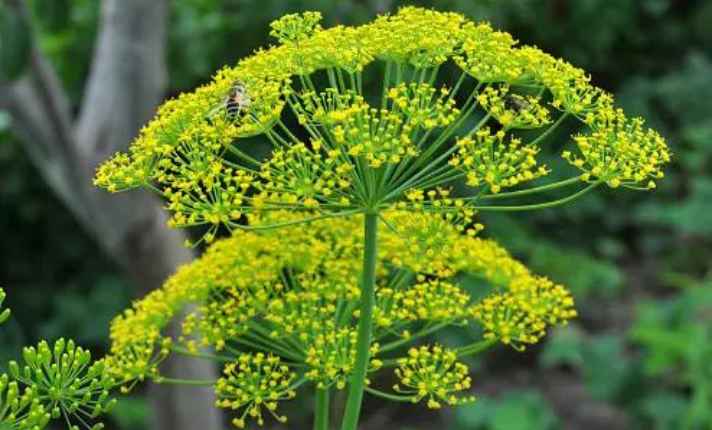
6. Basil
Planting basil with chive plants creates a garden that deters pests like aphids, thrips, and spider mites.
Ocimum basilicum (basil) and chives have similar growing conditions and their pest-repellent properties protect each other. This improves the robustness of your plants and keeps your garden healthy.
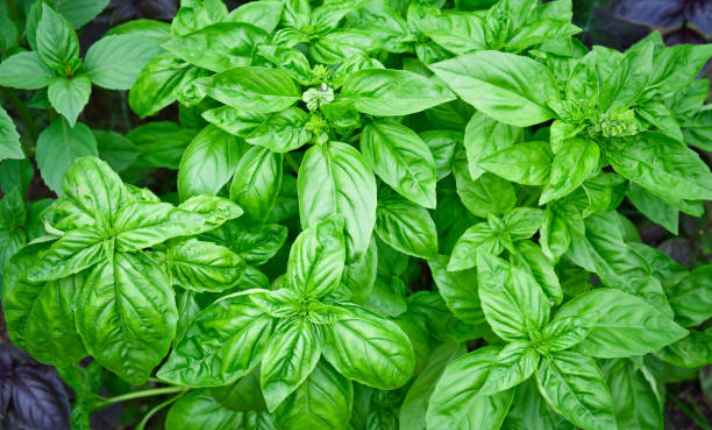
7. Roses
Planting chives near roses can help keep them healthy. Chives can deter aphids and black spot disease, making your roses bloom better.
Evidence shows that roses improve in health and bloom quality when chives are planted nearby.
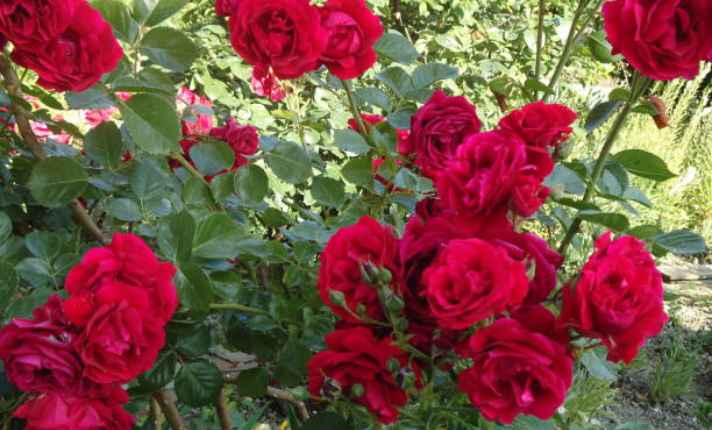
8. Marigolds
When you plant chives in your garden, it’s a great idea to add Marigolds too. Marigolds, also known as Tagetes spp, are known to repel many pests like nematodes, aphids, and flea beetles. These pests can harm your chive plants.
By planting Marigolds around your chives, you can help protect them from infestation. The vibrant color of Marigolds adds beauty to your garden while their pest-repellent properties complement the chives.
Together, they help in creating a pest-resistant area. Marigolds and chives form an effective barrier against common garden pests.
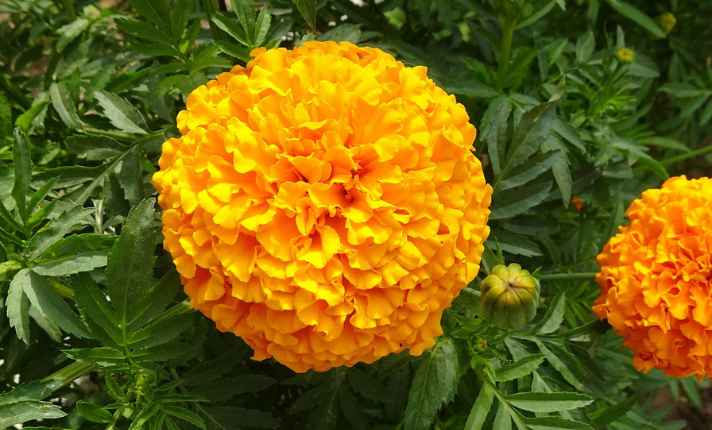
9. Nasturtiums
Growing Nasturtiums with chives is a great idea. These bright flowers, also known as Tropaeolum majus, make excellent companions for chives in the garden.
They help deter pests like aphids, whiteflies, and cucumber beetles that can damage your chive plants.
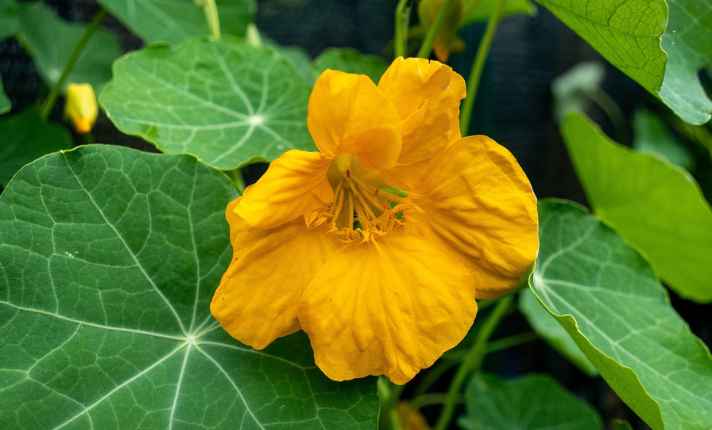
Their trailing habit means they spread out, providing good ground cover that helps with suppressing weeds and conserving soil moisture.
Just like marigolds, nasturtiums are good at repelling pests. When they are planted with chives, they really enhance the garden’s resilience against insect invaders.
10. Apple trees
When you plant chives near apple trees, it creates a mutually beneficial relationship. Chives are a great Companion Plant because they help repel pests that can harm the apple trees.
These pests, like borers and fungus, can ruin the fruit and the whole species of the tree.
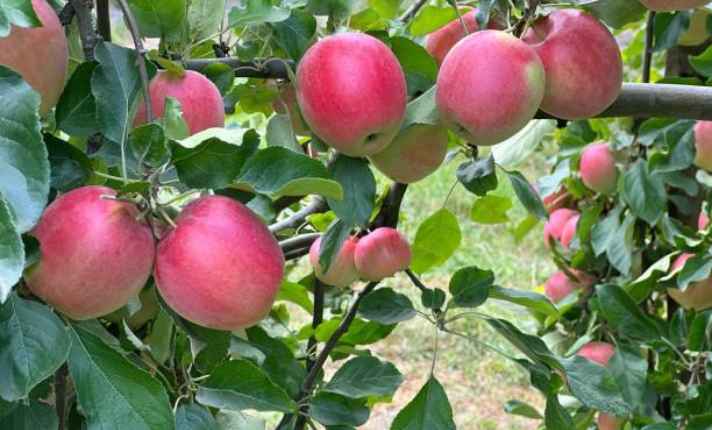
Chives also help prevent apple scab a disease that affects apples. By planting chives around your apple trees, you can deter deer and other animals from eating the trees.
Apple trees (also known as Malus domestica) attract pollinators like bees, which can help increase chive yields. Planting chives near your apple trees helps both plants thrive and keeps your garden healthy.
11. Strawberries
Growing strawberries near chives is a great idea. The chives help keep animals away from your bushes with their strong aroma.
This means the strawberries are safe and can grow better. Also, when you trim the chives and leave the clippings on the soil, it works as a natural mulch.
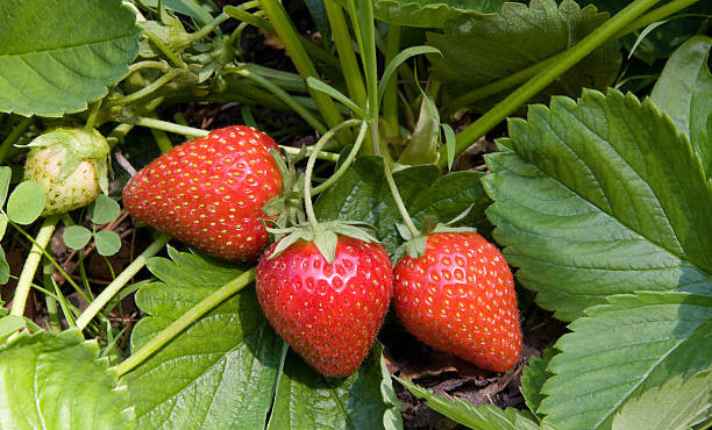
This helps the plants get more nutrients and increases the fertility of the soil. Just like apple trees, chives make your garden healthier and the strawberries taste great.
So, using chives with strawberries is a smart way to have a better feast from your garden.
12. Potatoes
When you plant chives and potatoes together, they don’t cause each other any trouble. The shallow roots of chives do not interfere with the potato plants and let them grow well.
Plus, many pests and insects stay away from the potato plants.
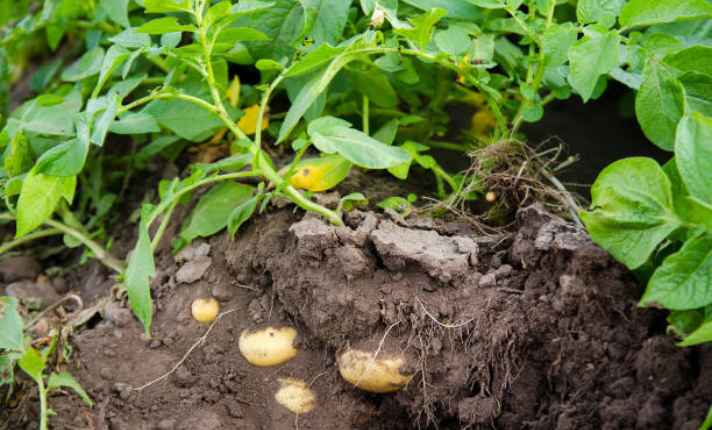
13. Peach trees
Growing chives next to Peach Trees (Prunus persica) provide shade and wind protection for the chives, creating a microclimate that supports healthy growth.
While peach trees attract insects that can destroy the fruit, chives deter harmful pests, protecting the peaches and ensuring overall plant health.
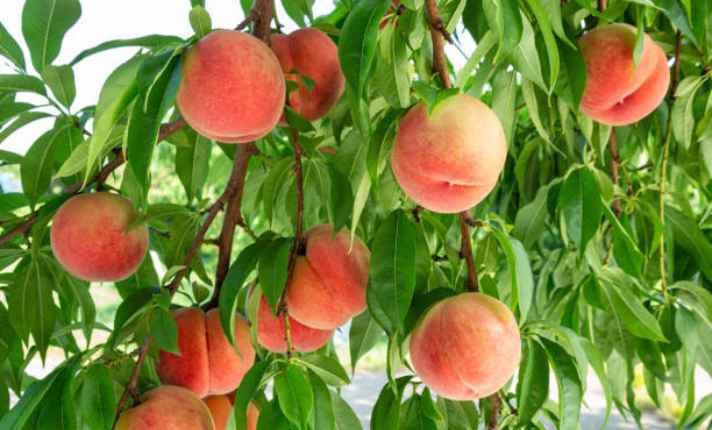
What Not to Plant With Chives
Chives can emit natural compounds that inhibit the growth of certain plants.
| Plants | Reasons for Incompatibility |
| Brassicas | Cabbage, broccoli, and cauliflower struggle as chives emit natural compounds that inhibit growth. |
| Herbs | Sage, thyme, lavender, and oregano have different growing needs compared to chives. |
| Spinach | Spinach plants’ growth is inhibited by chives. |
| Asparagus | Similar to other alliums, chives inhibit asparagus growth. |
| Peas and Beans | These legumes need a beneficial relationship with soil bacteria to fix nitrogen. Chives’ aroma and allelopathic chemicals can interfere with and affect productivity. |
Spatial planning and keeping a reasonable distance between chives and sensitive plants can help create harmonious spaces. Rotating crops annually also helps prevent negative buildup in the soil and keeps the garden ecosystem balanced and healthy.
Understanding these subtle relationships and complex interactions is part of the joy and challenge of gardening, turning your garden into a thriving ecosystem.
FAQ’s
Q: Do Chives Like Direct Sunlight?
A: Chives thrive in full sun and need well drained soil that is rich in organic matter. It’s important to test your soil to ensure it has a pH range of 6.0-7.0.
Although chives can tolerate light shade, they grow best with six to eight hours of direct light.
Q: Where Is the Best Place to Plant Chives?
A: When planting chives, it’s important to choose the right site. Chives love the sun but can also grow in light shade. They thrive in fertile, moisture-retentive, and well-drained soil.
These plants don’t take up much space, so you only need about 15-30cm or 6-12in for each plant, depending on the size of the clump you are planting.
Q: What Is the Best Month to Plant Chives?
A: Early in spring is the best time to plant chives, around 4 to 6 weeks before the last frost. They are a wonderful option for your perennial garden. You can plant them at the border among flowers or in a culinary container garden. Chives add beauty to your garden and make your dishes delicious!
Q: What Is the Lifespan of a Chive Plant?
A: Chives can grow to approximately 46 cm or 18 in in height. They can live for many years if the conditions are favorable.
Q: How Much Water Do Chives Need?
A: Growing chives is fun, but proper watering is crucial. They need plenty of water, with outdoor rain often being enough. Soil should always be moist, especially in summer when growth is vigorous.
The rest of the year, water less but check the soil regularly.
Conclusion
Planting onion-flavored chives in your garden is a great idea. They are part of the allium groups and have bulbs and slender green leaves that you can add to many dishes like omelets, yogurt, and pasta.
Growing chives with other plants is smart because you get double the varieties and healthy plants. Chives are great companion plants and very helpful in your garden. We hope this helps you enjoy a happy garden with your plant babies.
Check out my other guides to companion planting:
